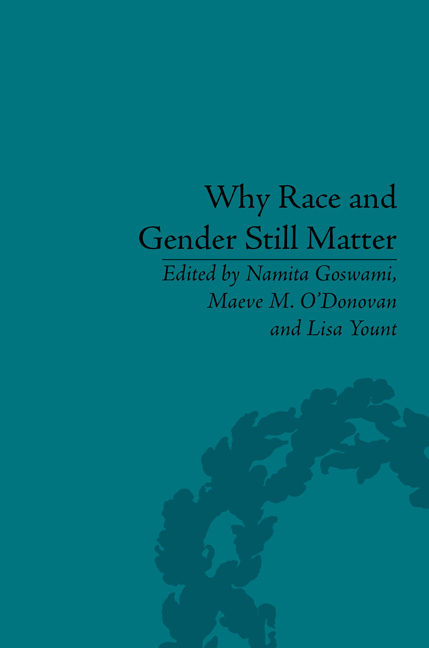Book contents
- Frontmatter
- CONTENTS
- Dedication
- Acknowledgements
- List of Contributors
- Introduction to Why Race and Gender Still Matter: An Intersectional Analysis
- Part I Defining Intersectionality
- 1 Race Women, Race Men and Early Expressions of Proto-Intersectionality, 1830s–1930s
- 2 Past as Prologue: Intersectional Analysis from the Nineteenth Century to the Twenty-First
- 3 Making Sense: The Multistability of Oppression and the Importance of Intersectionality
- 4 Reinvigorating Intersectionality as a Provisional Concept
- 5 ‘Big Red Sun Blues’: Intersectionality, Temporality and the Police Order of Identity Politics
- Part II Doing Intersectionality
- Notes
- Index
2 - Past as Prologue: Intersectional Analysis from the Nineteenth Century to the Twenty-First
from Part I - Defining Intersectionality
- Frontmatter
- CONTENTS
- Dedication
- Acknowledgements
- List of Contributors
- Introduction to Why Race and Gender Still Matter: An Intersectional Analysis
- Part I Defining Intersectionality
- 1 Race Women, Race Men and Early Expressions of Proto-Intersectionality, 1830s–1930s
- 2 Past as Prologue: Intersectional Analysis from the Nineteenth Century to the Twenty-First
- 3 Making Sense: The Multistability of Oppression and the Importance of Intersectionality
- 4 Reinvigorating Intersectionality as a Provisional Concept
- 5 ‘Big Red Sun Blues’: Intersectionality, Temporality and the Police Order of Identity Politics
- Part II Doing Intersectionality
- Notes
- Index
Summary
Methinks I heard a spiritual interrogation – ‘Who shall go forward, and take off the reproach that is cast upon the people of color? Shall it be a woman?’ …
Let our girls possess whatever amiable qualities of soul they may … It is impossible for scarce an individual of them to rise above the condition of servants …
What literary acquirement can be made, or useful knowledge derived, from either maps, books, or charts, by those who continually drudge from Monday morning until Sunday noon? … Had it been our lot to have been nursed in the lap of affluence and ease, and to have basked beneath the smiles and sunshine of fortune, should we not have naturally supposed that we were never made to toil?
Maria W. Stewart, ‘Franklin Hall Lecture’, Boston, 1832In the nineteenth century a handful of discerning African American writers, among them Maria W. Stewart, Frederick Douglass and Anna Julia Cooper, made theorizing about the interactions of race, class and gender central to much of their work. For these writers and activists, incorporating race, class and gender into their analyses resulted in due course from reflection on their experiences and understandings. Today, however, the idea of what is now called ‘intersectionality’ seems novel and is treated gingerly or not at all by mainstream philosophers.
- Type
- Chapter
- Information
- Why Race and Gender Still MatterAn Intersectional Approach, pp. 27 - 42Publisher: Pickering & ChattoFirst published in: 2014



